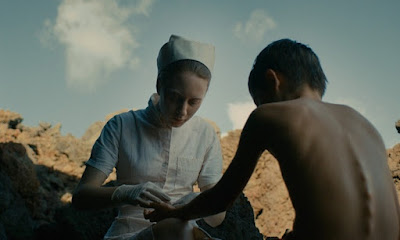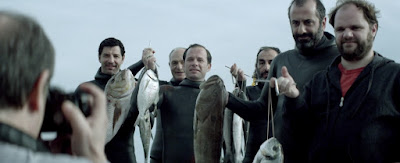 |
| Light Years |
By Kiomars Vejdani
LIGHT YEARS
Director: Esther May Campbell; UK, 2015
The film is from the collective point of view three children whose lives are affected by a dysfunctional father and a mostly absent mother due to mental illness. The impression they have of their parents is like a star light years away which even though can be seen by us might not exist any more. we see the fragmented lives of these children running parallel to each other with the hope of one day family being reunited.
PARTISAN
Director: Ariel Kleiman; Austria, 2014
The film revolves around the enigmatic character of Gregori (played by Vincent Cassel), the leader of a hideaway community of women and their children. He is protective of people under his care, providing them with food and amenities of life. But at the same time he acts like a dictator establishing arbitrary rules, very often illogical, at times immoral and even illegal. Anyone disobeying him will be banished from the community. His character is a mixture of saint and sinner. The double nature of his character is the basis for film's moral ambiguity. Our doubts about Gregori's character and his morality is personified by Alexander, an eleven year boy, who initially see him as a hero but gradually begins to see the other side of his character. The film ends at the moment of Alexander's indecision about the action to take against Gregori, leaving the audience in a moral limbo.
WEDDING DOLL
Director: Nitzan Gilady; Israel, 2015
The film has a mentally handicapped young girl as its protagonist. She can not survive without the support of her mother. She can cope with a simple manual job in a workshop. Her only talent is making wedding dolls. The plot revolves around her romantic fantasy about a young man who by emotionally exploiting her encourages the fantasy. Her ultimate dream is marrying the man which ends up in a bitter disillusionment at the climax of the film. The film's simple technique matches the purity and innocence of its main character.
KRISHA
Director: Trey Edward Shults; USA, 2015
A family drama about reunion of film's title protagonist with her her family. A complicated character with a range of emotional problems, Krisha is trying to re-establish rapport with her family after a long period of absence. But her excessive demand for love, both giving and receiving, proves to be counter-productive, causing rejection by members of the family. The film's tension builds up as the hostility of others escalates and becomes more direct ending up in the film's climax of a stormy scene. A powerful drama with an excellent performance by Krisha Fairchild in the title role.


























